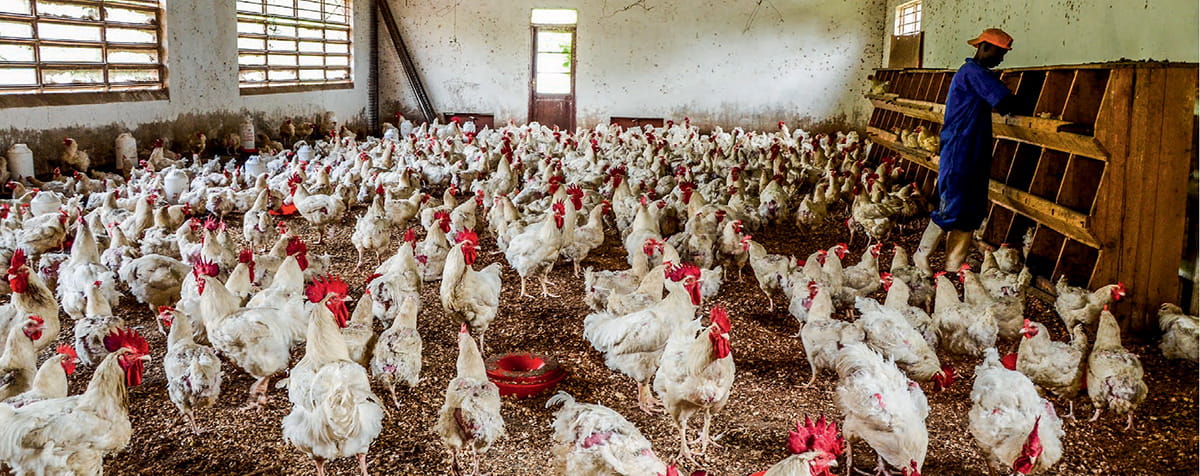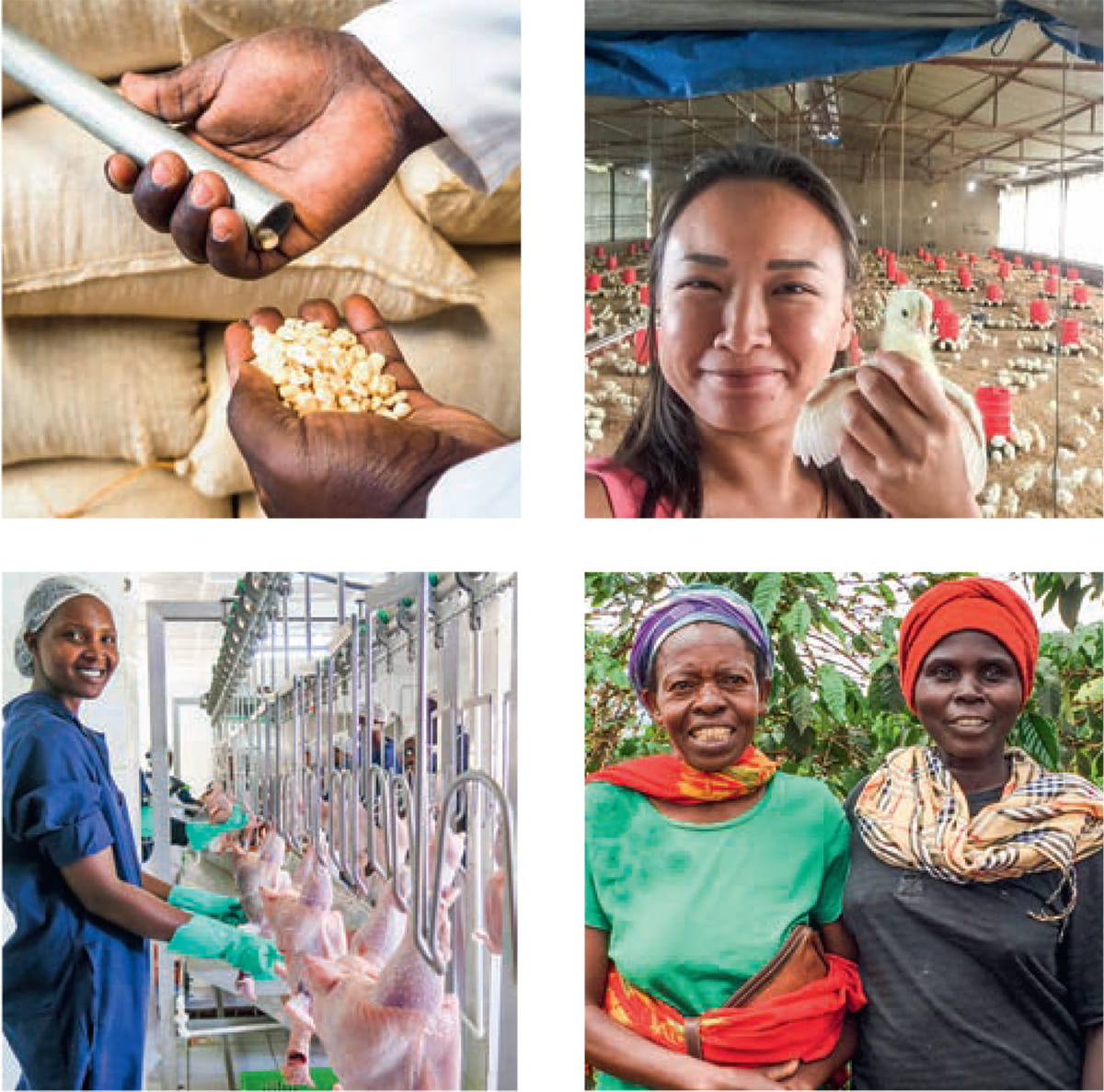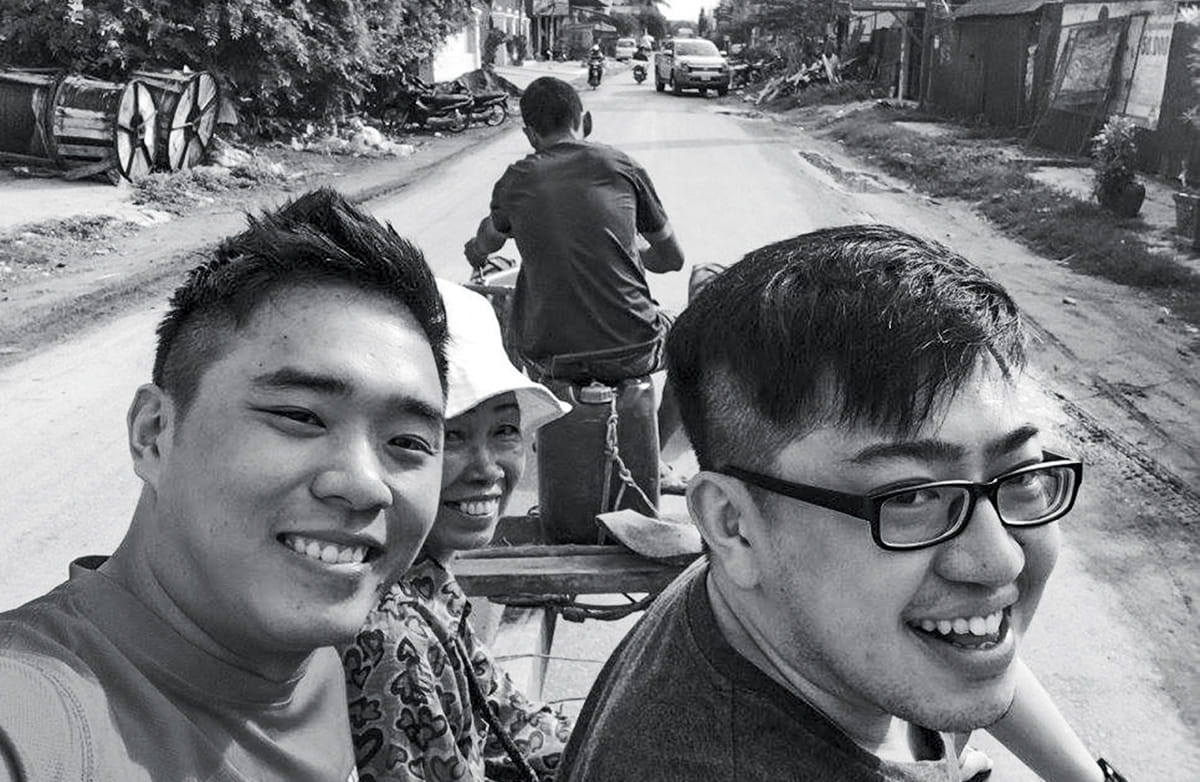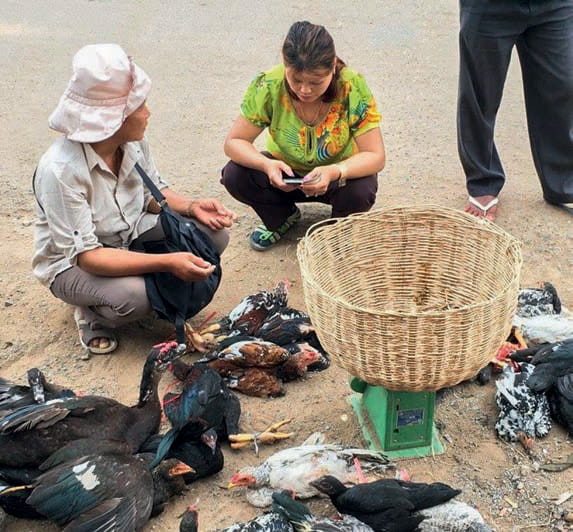Stories > Feathered Benefit
Feathered Benefit
With their bold plans to make poultry an accessible and affordable food in underprivileged rural communities, these two young entrepreneurs are giving Singapore something to crow about.
BY CORINNE KERK
PHOTOS POULTRY EAST AFRICA LTD, OUR CHICKEN STORY

Located in the rural town of Mayange, Rwanda, PEAL provides some 60 locals with stable jobs and regular salaries, while making poultry accessible and affordable to the general population.
or many, chicken is an affordable source of protein and a regular feature in meals. For others, however, it is a luxury they cannot afford.
Recognising this, two Singaporeans have set up chicken farms – in two different countries.
Lam Shumei, 32, set up Poultry East Africa Ltd (PEAL), in Rwanda in 2015, while Caleb Giam, 26, set up Our Chicken Story (OCS), in Cambodia in June 2016.
Despite not having prior experience in the business, they did this to provide rural communities with affordable meat, while empowering them to run self-sustaining chicken farms.
Both have changed the lives of the communities they work with for the better.
POULTRY EAST AFRICA LTD
Rwanda’s landlocked status means numerous logistics issues affect its food supply chain, one of which is the unavailability of quality chicken feed. This means small-scale chicken farming is uneconomical, making chicken the most expensive meat in the market.

Modern, high-tech, and efficient, PEAL is a first-of-its-kind business in Rwanda, with a weekly output of 5,000 chickens. Local staff are given free training and offered skills-based career progression, empowering them to live independently and confidently.
Lam was drawn to Rwanda through her late father’s compelling desire to give back to the community that helped grow his port operations and engineering business there. By building the country’s first modern poultry farm, she seized an opportunity to supply affordable and accessible meat to its growing population. PEAL is now located in the rural town of Mayange, a 40-minute drive from the capital, Kigali.
Lam had to overcome multiple issues at first, from communication problems and vastly differing working styles, to a lack of basic utilities, and a frustrating and long-drawn land acquisition process.
“The staff have... gone from being jobless to being regularly salaried, accumulating savings, buying their own bicycles and land, and building their own houses. ”
Dr Mary Uwanziga, feed mill manager, PEAL
But since full operations began in 2015, PEAL has had a weekly output of 5,000 chickens, and is now Rwanda’s top chicken farm operator with over 70 per cent of the poultry market share. More importantly, it has reduced poultry prices by 40 to 50 per cent.
PEAL employs some 60 locals, and the trickle down effects of these stable jobs and incomes have empowered their families and communities, and created a selfsustaining economy in the local village and its surrounding areas. Lam says Mayange is now the most prosperous and fastest growing sector in the district of Bugesera.
“Singaporeans are very hardworking, and they like to see good performance at work,” observes Dr Mary Uwanziga, PEAL’s feed mill manager, from her interactions with Lam. She notes that not only have the local staff learnt how to run a chicken farm, they have also gone from being jobless to being regularly salaried, accumulating savings, buying their own bicycles and land, and building their own houses.
Lam elaborates: “Initially, most of our staff were not fluent in English. We conducted free evening and weekend classes to help them communicate with their foreign managers more effectively. “Rather than penalising them for having a language disability, we offered them career progression based on their professional abilities. We also support numerous organisations, including orphanages, refugee camps, and families in the local Prisons Fellowship Program, by regularly donating chicken to them.”
Over the years, Lam has built a strong relationship with the Rwandan government. Through her business, she also befriended and built close relationships with two Rwandan ladies who are now “mums” to her. “Every time I am there, I go to their homes for home-cooked meals and honest conversation. It always makes me feel like I am in a home away from home,” she says.
Says Faith Shaw, owner of Lakeside Fish Farms and one of Lam’s Rwandan “mums”, who also takes care of over 15 orphans and runs a school for the local community: “Our many children, my husband, and I will always be grateful for the chicken dinners we have had because of the chicken farm. PEAL’s contribution to our well-being out here in a remote part of Bugesera will always be a positive in our lives.”
Lam hopes PEAL’s success will encourage other Singaporean entrepreneurs to think outside the box, and take leaps of faith to do business in Rwanda. She plans to expand PEAL up and down the value chain.
“There are endless opportunities for Singaporeans to bring their business experiences and best practices to a place that’s developing and eager to learn,” she reasons. “Rwanda aspires to be the Singapore of Africa, so it makes perfect sense to harness bilateral trade and agreements, and from the side of Singaporean investors, contribute towards Rwanda’s growth via cooperation and capacity building.”

Giam (left) has friends joining him in his efforts in Cambodia, and in the process they learn much about themselves, each other, and their Cambodian friends. Here he is with Jeremy Loh, who let him stay in his AirBnB apartment in Cambodia when Giam was running low on funds.
OUR CHICKEN STORY
Giam’s enterprise is co-run with his girlfriend, Sherlynn Yap. How it works: They give chickens to participating villagers, who then take on full responsibility for the fowl. The villagers can breed the birds or sell their eggs for a regular food supply and/or income.
Giam started his project with $1,000 borrowed from his brother-in-law. Moved by the fact that many villagers had never before eaten chicken or eggs, he built a chicken farm near an orphanage in Chomkarcheck Kang Cheng village in Pursat province, Cambodia. Sale of the eggs gave the orphanage some income, and both the children and their caregivers got to learn and develop agricultural skills by rearing the chickens. Cambodian Chhey Ya Vy, who now helps run the farm, says he has gained a close friend in Giam, and also learnt a little of what Singapore and Singaporeans are like – earnest, friendly, and helpful. The farm produced 6,000 eggs in its first year, but half the chickens died. Giam realised that one central farm was not enough to feed an entire village. Neither was the model sustainable, as the materials used to construct the farm were costly.
This led him to develop OCS’ 2017 model, which involves giving each participating family a chicken starter kit in order to engage them more closely as partners. It was also scalable, feasible, and sustainable.
“The locals are the centre of this initiative. They need to spearhead this project... We hope they will be inspired to extend the same helping hand to other villages in need.”
Caleb Giam, co-founder, Our Chicken Story
The kit comprises an “Ikea-style” easy-to-assemble chicken coop, two mature chickens ready to lay eggs, as well as vaccinations and feed. Villagers who receive the kits have to care for the birds using natural and/or available resources. “This helps them feel ownership of the project, as it capitalises on their expertise and resources,” says Giam, who hopes to introduce this model in Chiang Mai, Thailand.
As two chickens can lay up to 550 eggs a year, village families have the option of hatching some to rear more chickens, consuming the eggs and mature chickens, or selling the eggs and chickens to a central farm that Giam plans to build near them. This farm will house up to 300 chickens and accommodate an employment centre where villagers can be trained to become competent chicken farmers, build OCS’ starter kits, and pack eggs to be sold in the city.

Chickens being sold on the streets of Cambodia.
Local university students will be engaged to develop a good business model to market the eggs to supermarkets, while community leaders will be empowered and equipped with farming techniques. The aim is to impact 130 families and a total of 600 people in Chiang Mai. After one year, OCS’ central farm is projected to be able to sell 1,300 eggs a day, thus greatly improving the locals’ income, and hence well-being and quality of life.
In this cross-cultural cooperative, Giam says, sustainability hangs on OCS having respect for the villagers. “We believe hunger and poverty do not define them,” he says. “The locals are the centre of this initiative. They need to spearhead this project. OCS seeks to empower them by supporting them financially, providing leadership development and know-how.”
And all this can only work with close collaboration – including across borders. “We hope they will be inspired to extend the same helping hand to other villages in need,” says Giam. “Singapore is in a strategic place from which to impact overseas communities regionally, as well as globally. We need to channel our resources and knowledge into building good networks. Making friends for Singapore is a by-product of genuinely wanting to do good in overseas communities.”
